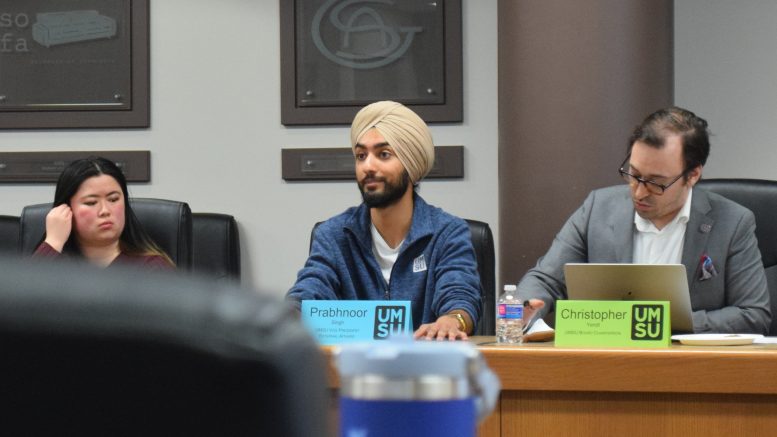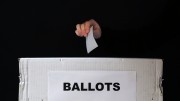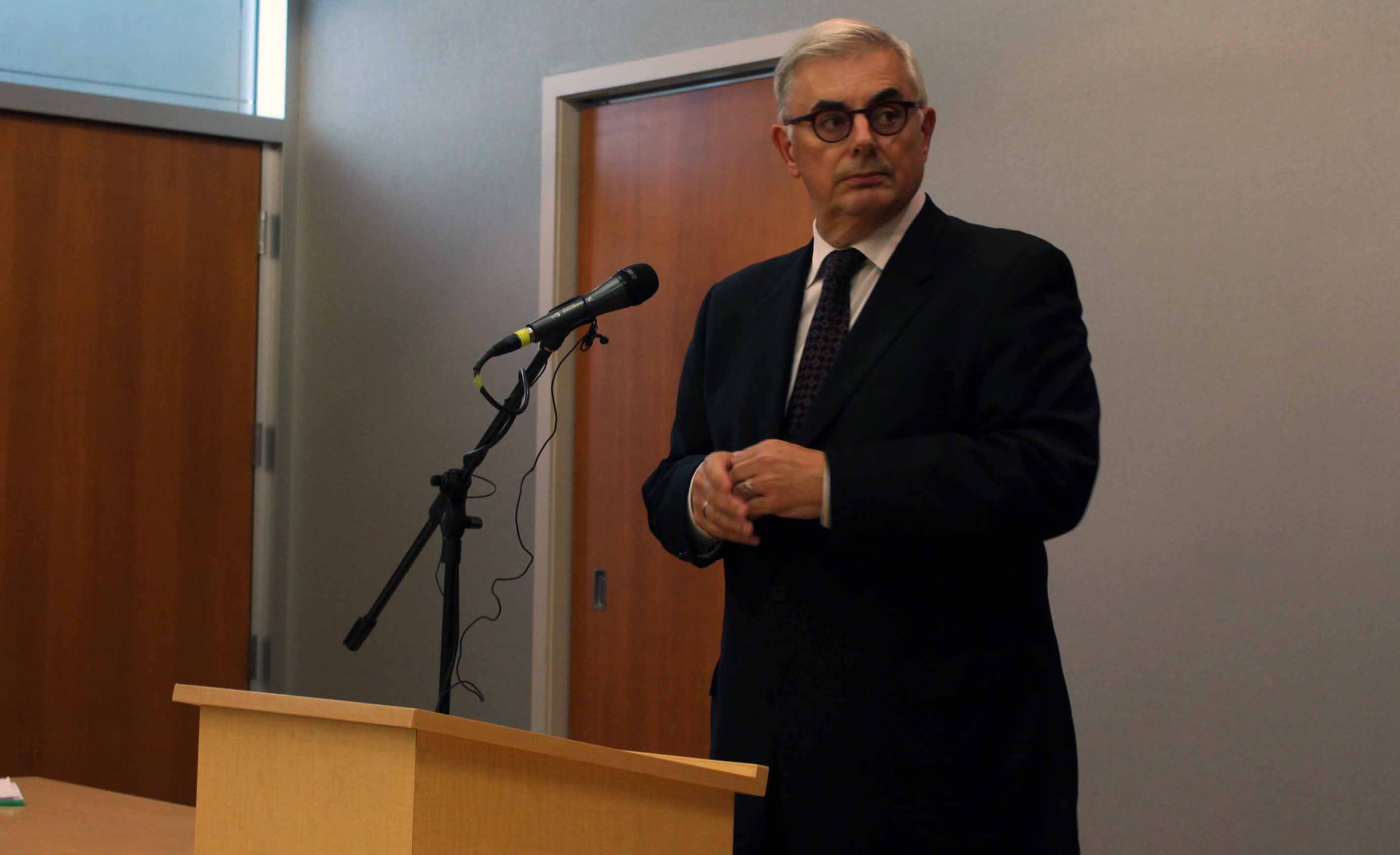A motion calling for the University of Manitoba Students’ Union (UMSU) community representatives to receive a $500 honorarium upon completion of their terms has been referred to finance committee for review — moments after members of the UMSU executive voiced their opposition.
The motion entitled “Fairness for Community Reps” was submitted by student-at-large Victoria Romero at the April 10 UMSU board meeting and was seconded by Andrew Beck, Interdisciplinary Health Program Students’ Association representative.
UMSU currently has seven community representatives who are to “advocate on behalf of, and represent their community at the UMSU board of directors in the best interest of their community,” amongst other tasks, according to the UMSU Governance and Operations Manual.
Community representatives are elected and serve without a salary, with each community group receiving a dedicated room on campus and up to $16,000 for events and initiatives that benefits the community.
UMSU executives in opposition of community representative honoraria
Directly before the motion was introduced, vice-president student life Bolu Akindele and vice-president external affairs Prabhnoor Singh presented what he called the “UMSU exec stance” on community representative honoraria.
Singh claimed that providing honoraria “could compromise the integrity of the board,” adding that it could lead to a “narrow self-serving agenda” amongst the community representatives.
“Paying voting members could lead to biases in decision making and paying members might vote based on what benefits them financially or personally, rather than what’s for the best interest of their community or the organization as a whole,” he stated.
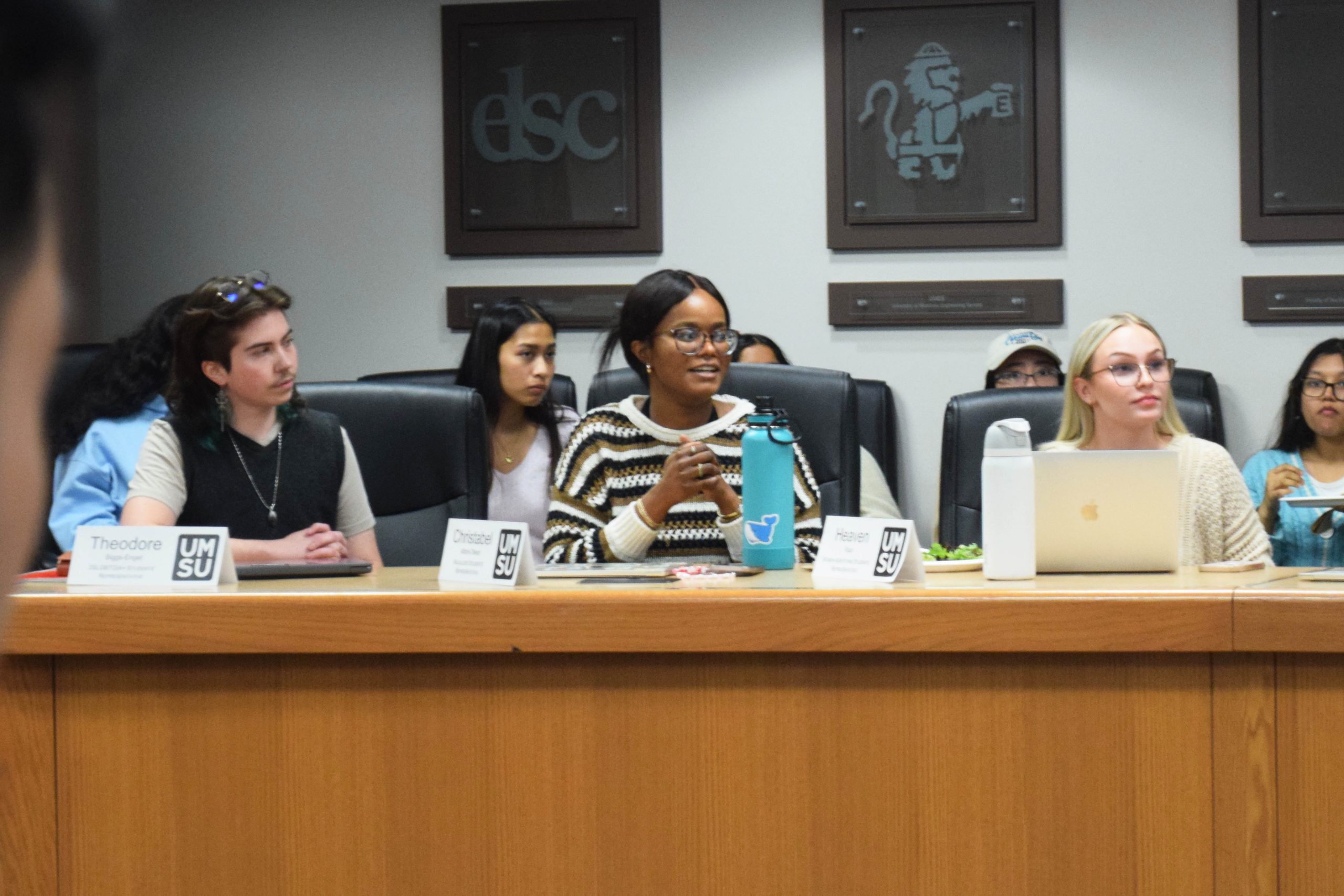
2SLGBTQIA+ students’ representative Theodore Biggs-Engel (left), racialized students’ representative Christabel Attoni-Oteari and Women’s Centre representative-elect Leata Goulet (right) were amongst the students that asked questions following the presentation from Singh and Akindele. Photo by Milan Lukes
Singh said that UMSU executives and the general manager do not receive a vote on the UMSU board of directors because they receive salaries.
UMSU president Divya Sharma acknowledged that community representatives have received financial compensation in the past, but claimed that they have not always had voting rights at board meetings.
“We recognize that there are legal risks to doing this,” she stated.
In an email statement to the Manitoban, Theodore Biggs-Engel, 2SLGBTQIA+ students’ representative, claimed that community representatives received honoraria for the past two years while still holding voting rights.
Lack of structure to assess honoraria, says Singh
Singh also stated that there is a “lack of structure to assess honorariums,” which makes it “impossible to assess contributions and decide who should receive what amount with honorariums.”
He claimed that this was a major reason why last year’s finance committee opted to not proceed with community representative honoraria this year.
“Determining how much honorarium each individual person should receive can be highly complex,” said Singh.
“Without clear performance metrics, there is no fair way to justify honorariums.”
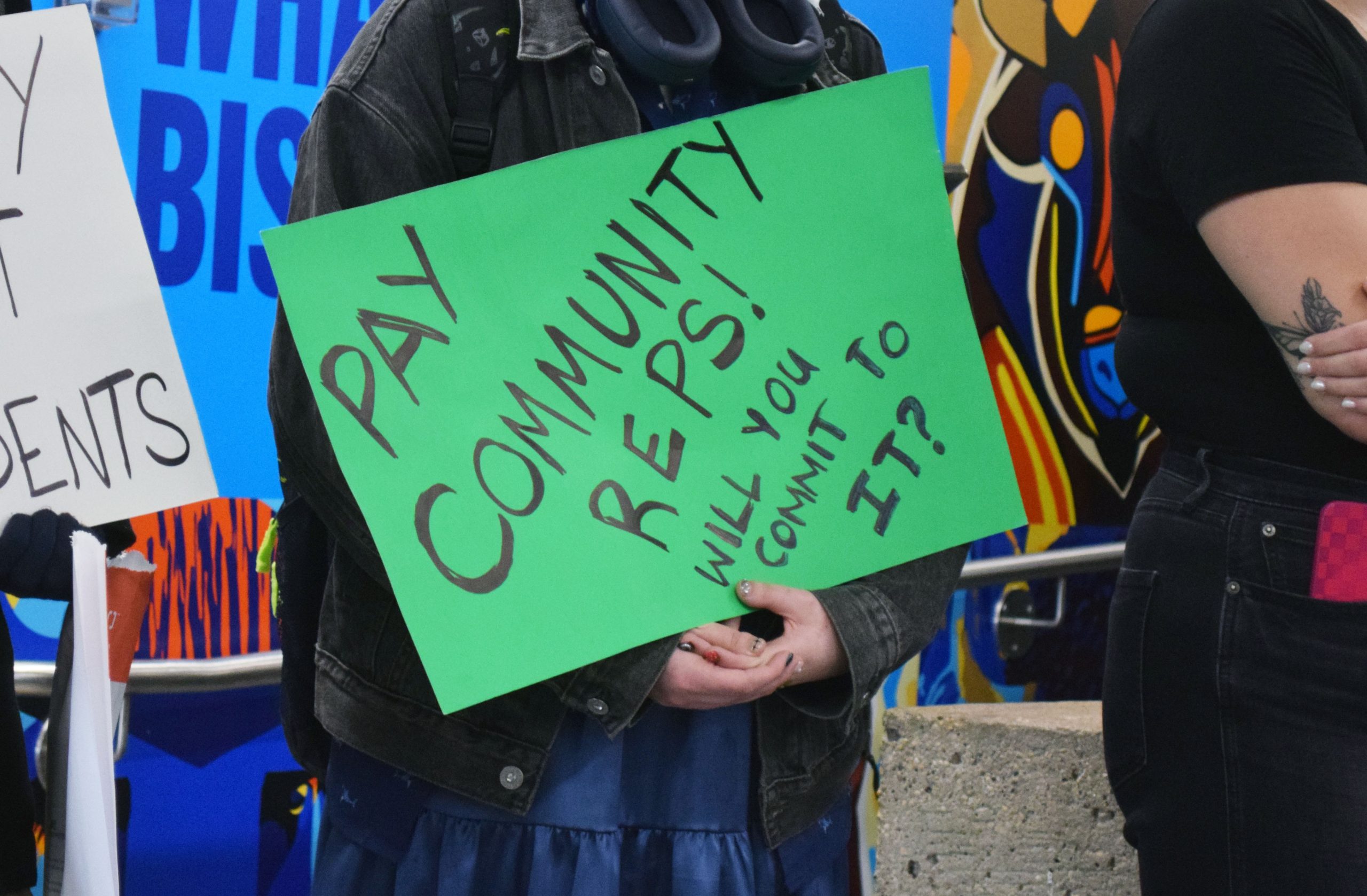
A student held a sign at the Feb. 26 UMSU vice-president forum calling for candidates to commit to paying community representatives if elected. Photo by Milan Lukes
Singh, who is also the UMSU president-elect, stated that he is “not against community reps ever getting an honorarium,” but added that “there needs to be a lot of research which is done.
“First on how the honorariums would function, assessment using key performance indicators and looking at the work that other student unions have done with regards to paying honorariums or not.”
Sharma stated that she and Akindele discussed with community representatives at the start of the year the finance committee’s decision to not grant them honorariums.
“I believe we had a mutual understanding,” she said.
Sharma stated that UMSU will be looking into a study to implement a framework to measure key performance indicators next year.
